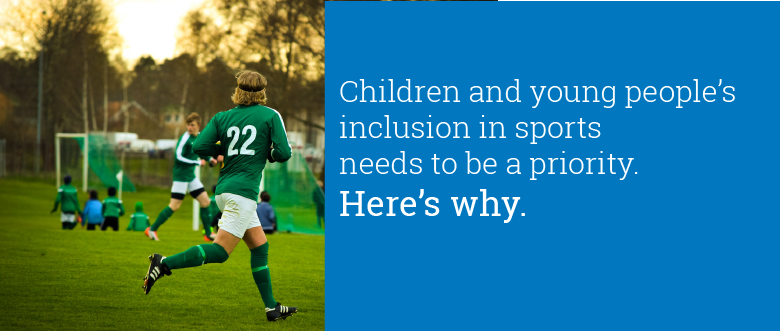New Product: Swimming Pool Cover
Stuart Canvas are proud to have manufactured their first swimming pool cover to the clients specific requirements....

After a fantastic year in sport for England, with some monumental highs and success stories across a number of different sports, children and young people have some truly aspiration teams to look up to.
With a lot of programmes, from Last Man Stands, Chance to Shine, All Stars Programme, NatWest’s Club 20 supporting young people and children in cricket, it’s great to see the popularity of the sport grow.
The challenges children and young people are facing in society are serious and inclusion in sports can help reduce the burden of these challenges. Inclusion in sports has been found to have considerable health and educational benefits, which is why involvement in sports needs to be considered a real priority.
According to the Mental Health Foundation, mental health problems affect one in ten young people in the UK. This ranges from anxiety and depression, to conduct disorder, amongst others.
A recent article from LiveStrong.com describes how taking part in sports and exercise encourages the production of brain chemicals such as endorphins, which can improve your mood and make you feel good. Studies have also shown that engaging in sports can assist in relieving stress and reduce the impact of stress related illnesses such as insomnia and anxiety.
Playing a team sport reduces isolation and encourages social interaction, which is all part of having a healthy life balance and can have a positive impact on mental health.
In 2015 a Public Health England study found that around a quarter of two to ten year olds and one third of eleven to fifteen year olds are overweight or obese.
The UK government has recently published a plan of action to combat Childhood obesity, addressing the concept that sustainable change will only be achieved through the active engagement of schools, communities, families and individuals. The government is focused on driving physical activity for children and young people in schools and have committed to working with national governing bodies and national and local sports providers to ensure improvement of the co-ordination of quality sport and physical activity programmes for schools. The plan of action includes increasing children’s inclusion in sports, whilst making food and drink healthier; which is predicted to significantly reduce childhood obesity in the next ten years.
In the plan of action the government has highlighted the need for organised sport in schools.
Providing children and young people with sport facilities and equipment is essential in ensuring children take part in physical exercise. Facilitating team sports such as cricket or football will encourage social interaction and have both physical and mental health benefits.
Ultimately, a lot of obesity is caused by an energy intake imbalance; i.e. more energy and calories consumed than used by the body, something which inclusion in sports and physical exercise will help to combat directly.
Furthermore, obesity has been found to lead to stigmatisation, bullying and low self-esteem, which in turn impacts school attendance, leading to an increased absence rate.
Both physical health problems and mental health problems can be a cause for absence in schools. Using sports to reduce the impact of these problems should have a direct positive impact on education for children and young people.
Children and young people’s inclusion in sports has also been found to have a positive impact on learning. School-based physical activity has been associated with improved concentration, leadership skills, increased discipline and better time management amongst others. Involvement in team sports is likely to improve children and young people’s communication skills and team working ability –skills that become invaluable as individuals enter a working environment in later life.
For children and young people, inclusion in sports will effectively contribute to improved mental and physical health, a reduction in obesity, improved social skills, improved learning skills, amongst other benefits.
These benefits are unlikely to be temporary. Sports England have found that inclusion in sports from a younger age is likely to encourage later life activity –meaning the benefits above will continue into later life too.
Health and Education are two extremely concerning issues at the moment –ones which can be effectively alleviated through inclusion in sports.
Let’s celebrate in the success we have seen in sports this year and create inspiring environments for children and young people to excel in sports and reap the rewards.
Click here to access some government advice on starting active and staying active.
